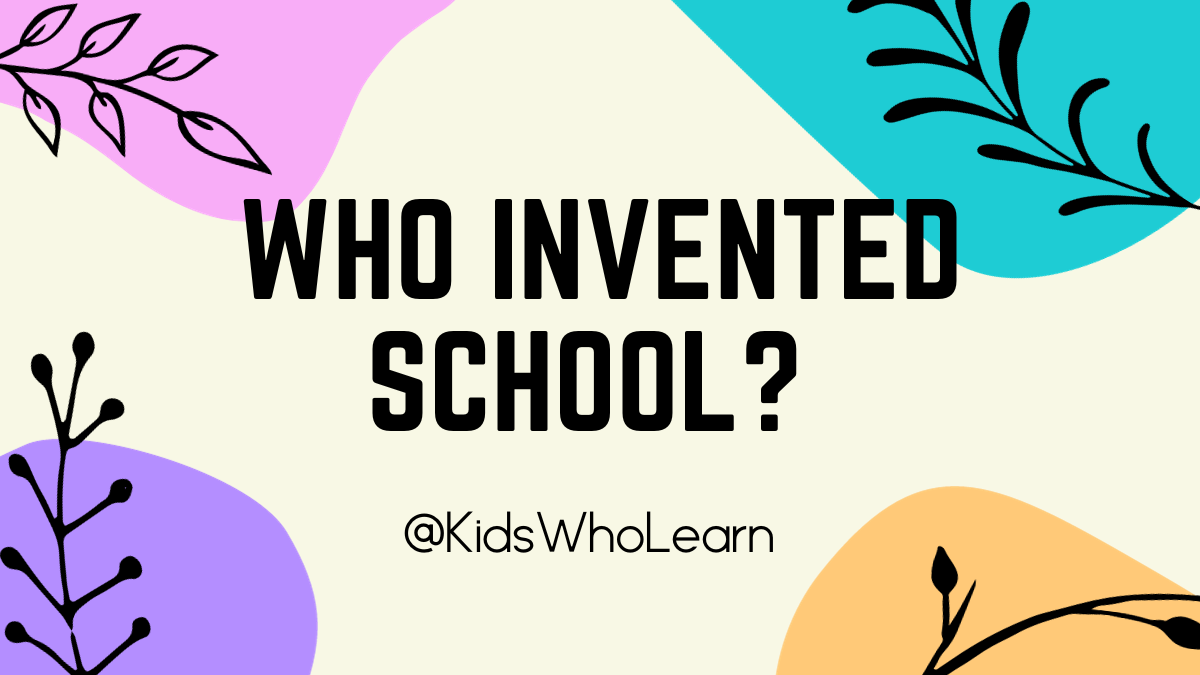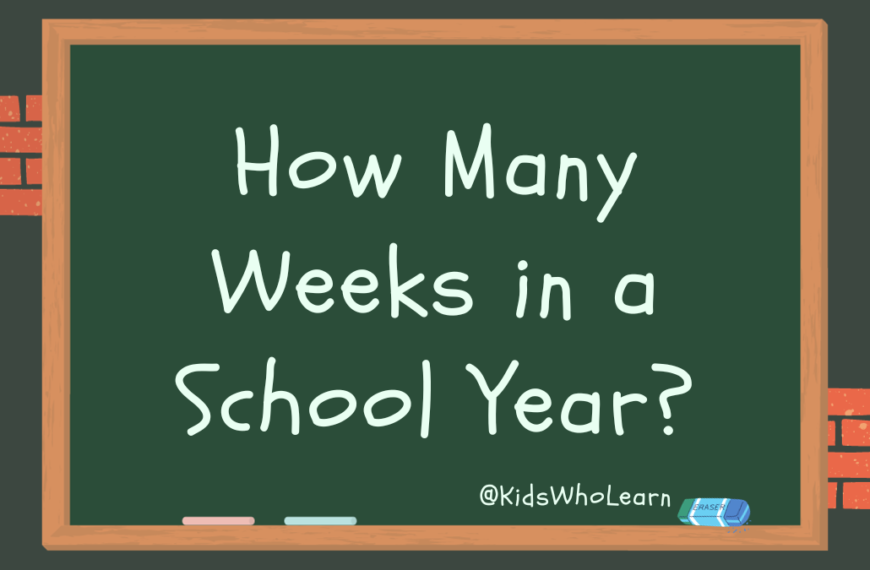Who invented school? While Horace Mann is known to be the father of our modern education system, the full history of education and schooling is a bit more complex. The invention of schools is a complex story spanning multiple civilizations and time periods.
While it is difficult to pinpoint a single individual responsible for the creation of schools, it is clear that formal education has ancient roots across various cultures.
Ancient Egypt, Mesopotamia, Greece, Rome, India, and China all had their own systems of formal schooling, influenced by religion, culture, and educational philosophies of the time.
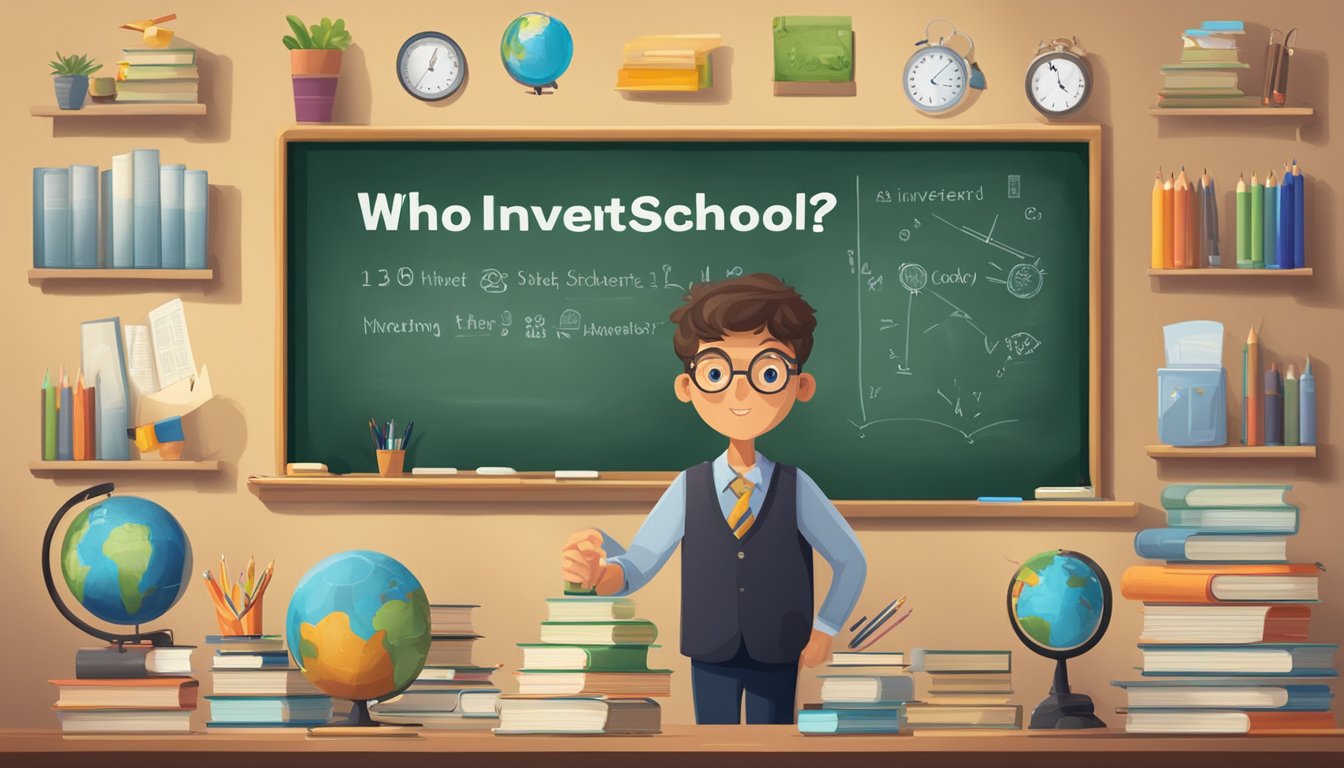
As the concept of school evolved, key figures in education like Horace Mann played a significant role in shaping modern educational systems.
The growth and development of schools were also greatly affected by the Industrial Revolution, which brought about transformative changes in societal structures and thinking.
Today’s schools are a result of centuries of revisions and reforms by devoted educators, philosophers, and policymakers striving to provide quality education for generations to come.
Key Takeaways
- Schools have ancient origins across various civilizations, influenced by religion, culture, and educational philosophies.
- Key figures, such as Horace Mann, contributed significantly to the development of modern educational systems.
- The evolution of schools reflects societal changes, including the impact of the Industrial Revolution on education.
Historical Origins of Schools
The concept of formal education has deep roots in the ancient world. One of the earliest known examples of structured teaching took place in Mesopotamia, also known as the “Cradle of Civilization.”
In this region, centers of learning known as “scribal schools” or “tablet houses” emerged, where students learned to master the complex cuneiform script.
Another early form of formal education was established in ancient Egypt during the Middle Kingdom, under the direction of Kheti, treasurer to Mentuhotep II (2061-2010 BC).
This initiative demonstrates the importance of education in the early civilization of North Africa and the Middle East.
In ancient Greece, the prominent philosopher Plato played a major role in laying groundwork for educational institutions.
He established the Academy, a place dedicated to learning and discussion, which is still influential in our modern understanding of education.
Boys from wealthy families attended tertiary education, where they studied subjects like philosophy and rhetoric—an essential skill for individuals seeking power and influence in ancient Greek society.
These educational centers helped shape the idea of school, influencing the future of classroom education.
While it is difficult to credit a single person with inventing the concept of school, the origins of organized education can be traced back to ancient civilizations such as Mesopotamia, Egypt, and Greece.
These early forays into structured learning were instrumental in shaping the way society values and approaches the education process today.
Key Figures in Education
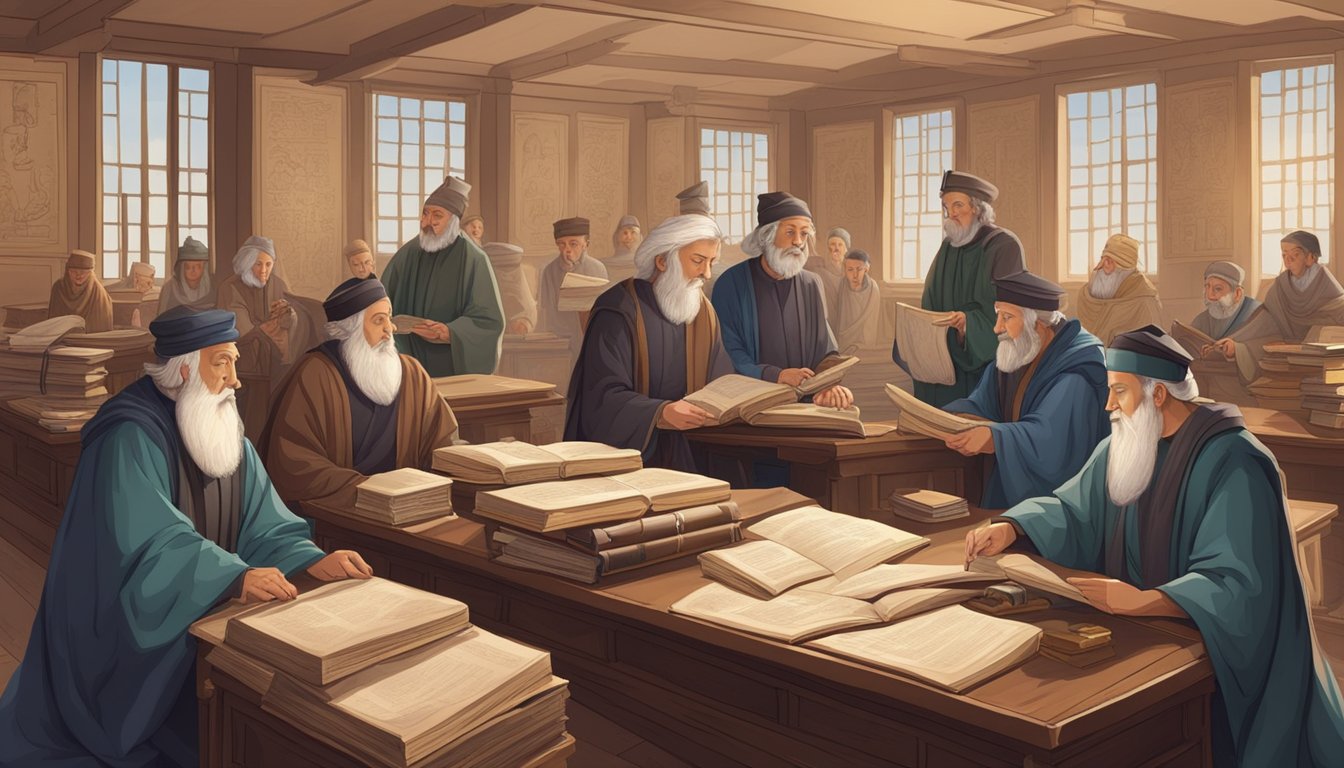
Throughout history, several key figures have made significant contributions to the evolution of formal education.
In ancient Egypt, a treasurer named Kheti played a crucial role in organizing one of the earliest known formal schooling systems during the Middle Kingdom period.
In Ancient Greece, the famous philosophers Socrates, Plato, and Aristotle heavily influenced the educational landscape.
Socrates developed the Socratic method, an approach to learning that involves questioning and critical thinking.
His student, Plato, founded the Academy in Athens, one of the earliest institutions of higher learning.
Plato’s most famous student, Aristotle, later established the Lyceum which emphasized the importance of empirical observation and experience in education.
Moving forward to the Renaissance, Johann Gutenberg‘s invention of the printing press in 1440 revolutionized access to knowledge, allowing books to be mass-produced, and dramatically increasing literacy rates in Europe.
A few key thinkers and educators from the modern era include:
- John Dewey: An American philosopher and educator, Dewey was a proponent of progressive education and believed in hands-on, experiential learning rather than rote memorization.
- Maria Montessori: An Italian physician and educator, she developed the Montessori method which emphasizes self-directed learning, observation, and personal responsibility in education.
- Lev Vygotsky: A Russian psychologist, he introduced the zone of proximal development concept, highlighting the potential for growth when children learn with guidance from a more knowledgeable peer or adult.
These individuals have had lasting impacts on the education systems we see today, shaping how educational institutions function and the methods employed in teaching and learning.
Horace Mann’s Contributions
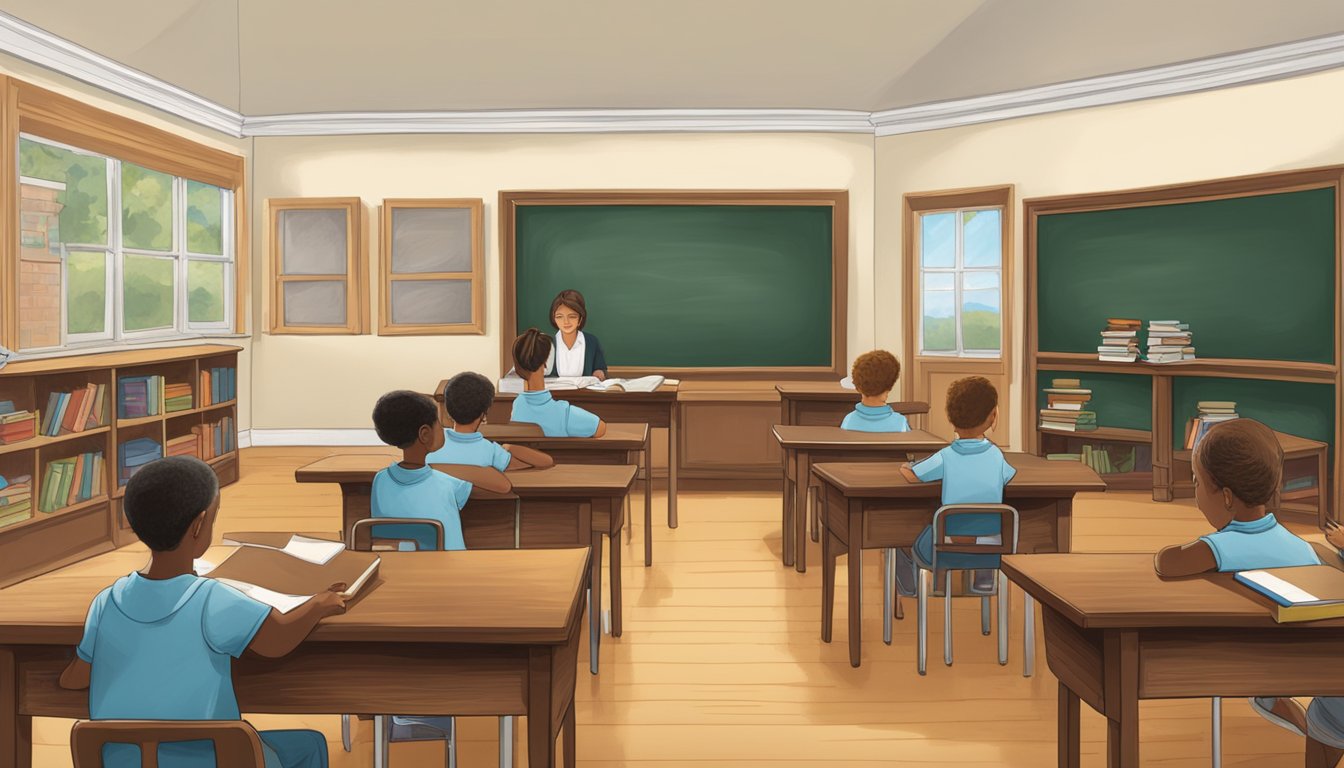
Horace Mann (1796-1859) was a prominent American education reformer who significantly influenced the development of public schools in the United States. Often referred to as the Father of the Common School, Mann dedicated his career to advocating for a free, universal, non-sectarian, and public education system.
Born in Franklin, Massachusetts, Mann did not have a strong formal education growing up. However, using resources from the Franklin Public Library, he was able to self-educate and eventually attend law school. His background undoubtedly shaped his beliefs on the importance of education for everyone.
Mann’s vision for public education comprised of several core principles:
- Citizens cannot maintain both ignorance and freedom;
- Education should be free and universal;
- A non-sectarian system that respects all religious beliefs;
- High-quality, trained teachers should guide the educational process.
Mann also emphasized the importance of moral, social, and economic uplift that could be achieved through education reform.
During his tenure as the Massachusetts Board of Education’s secretary, Mann focused on overseeing and improving the operation of the public school system. He advocated for better school buildings, longer school years, and improved teacher training. Additionally, he established normal schools – institutions designed specifically to train teachers – as a way to professionalize teaching.
Mann’s contributions to education reform had a long-lasting impact on American public education. His principles and convictions continue to shape the values and structure of the US education system, and his work remains relevant even today.
The Role of Religion in School Founding
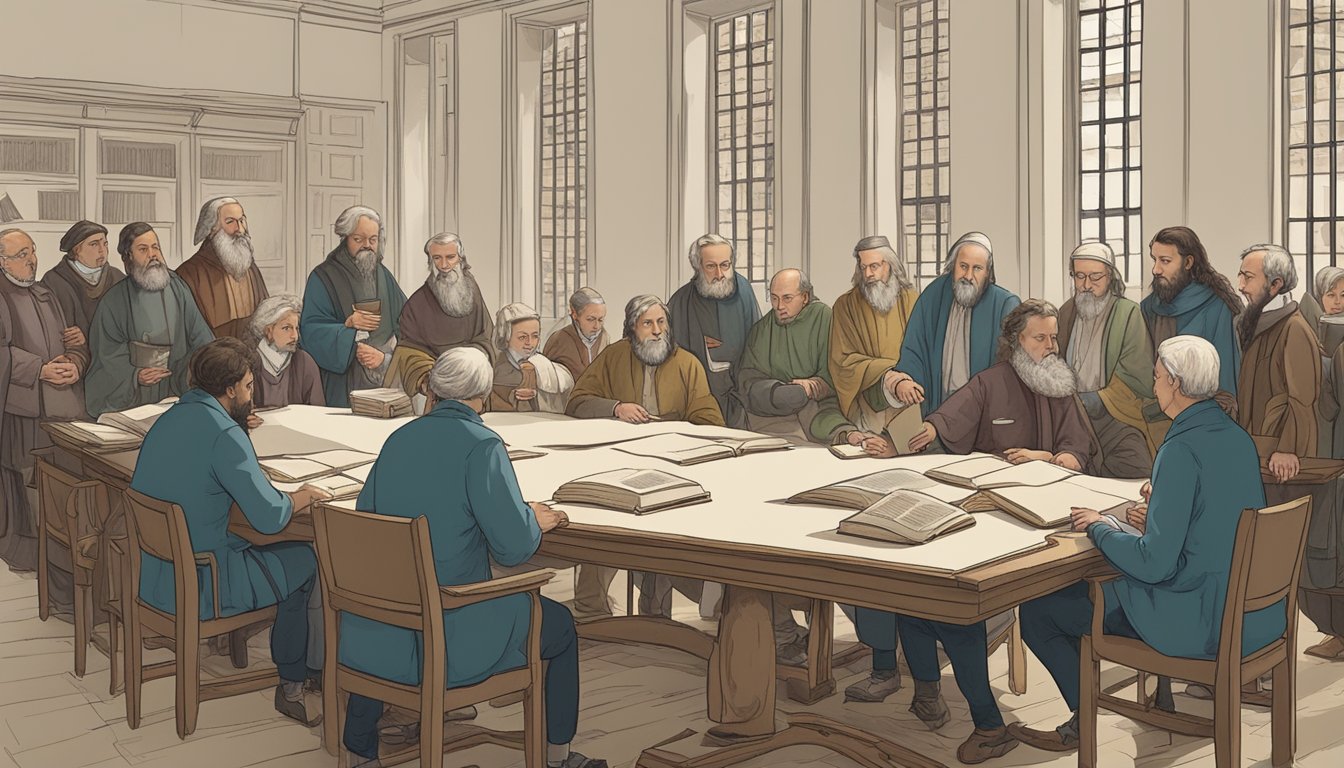
The history of schools dates back to ancient civilizations, where religion played a significant part in the founding and development of educational institutions. For instance, in ancient Egypt, Greece, and India, schools were established mainly to teach religious principles and practices1.
In the United States, the early history of public education also shows a strong connection with religion. Many of the first schools were established by religious organizations and were designed to teach children about religious values in addition to reading, writing, and arithmetic2. Among the early American schools were the ‘Dame Schools’, which were typically run by women in their homes, and their primary goal was to provide basic education with a focus on religious teachings3.
To provide more context, here are some key dates and developments that highlight the role of religion in the founding of schools:
- 17th century: The first public schools in the American colonies were founded by Puritans to teach their children to read the Bible2. Such historical examples include the Boston Latin School (1635) and the Collegiate School (now Yale University, 1701)3.
- 19th century: The Common School movement, led by Horace Mann, sought to create a secular, non-sectarian public school system4. While church schools and religious teachings were still prevalent, the aim was to establish a public education system that could unite people from various religious backgrounds.
- Early 20th century: Religion continued to play a role in American schools, with prayers and Bible readings included in daily activities5.
It is important to note that the policy of keeping religion out of public schools in the United States was not fully established until the mid-20th century. In fact, the U.S. Supreme Court ruled that prayer in public schools was unconstitutional in 19626. This decision not only clarified the separation of church and state but also emphasized that public schools could not promote or endorse any religion.
Footnotes
- Who Invented School? The Story Behind Monday Mornings. ↩
- The History Of Religion In American Public Schools. ↩ ↩2
- History and Evolution of Public Education in the US. ↩ ↩2
- Religion in Schools in the United States | Oxford Research Encyclopedia. ↩
- The Enduring Problem of Religion and the Public Schools. ↩
- The History Of Religion In American Public Schools. ↩
Educational Philosophies and Theorists
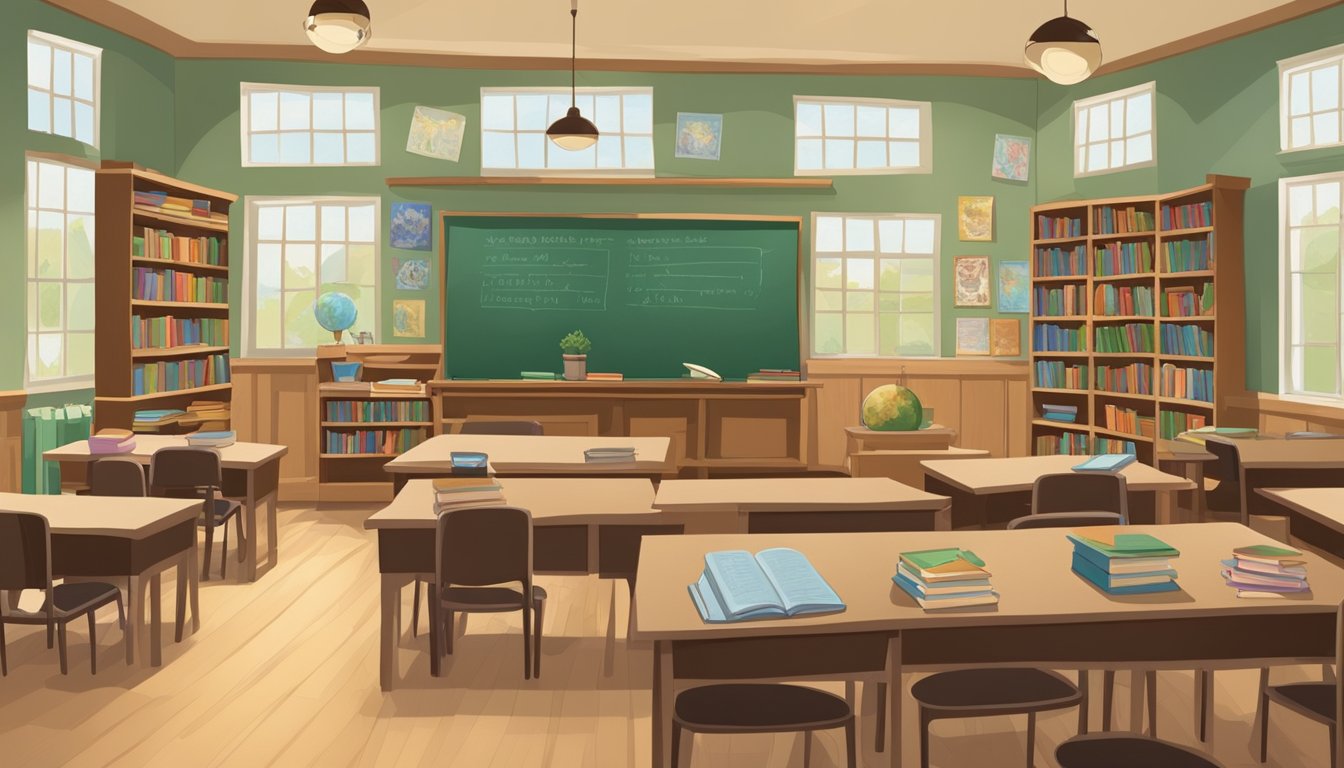
The history of education is marked by the contributions of many philosophers and theorists. Among the earliest recorded educational institutions is Plato’s Academy, founded in 387 B.C. in Athens, which laid the groundwork for future educational establishments.
During the Enlightenment, Jean-Jacques Rousseau introduced the concept of child-centered education. He believed that children should be allowed to follow their innate curiosity and learn through experience. Rousseau’s ideas greatly influenced subsequent educational theorists such as Johann Heinrich Pestalozzi, who emphasized the importance of hands-on learning and a holistic approach to teaching.
In the 19th century, Horace Mann became known as the Father of the Common School Movement in the United States. His advocacy for free and universal public education shaped the modern school system in the US. Mann believed in the importance of a non-sectarian curriculum and the training of professional teachers.
Key educational philosophies and their respective theorists include:
- Progressivism: John Dewey is the leading proponent of this philosophy, which emphasizes learning through experience, problem-solving, and critical thinking. Progressivism is rooted in the belief that education should be relevant to the needs and interests of the learner.
- Essentialism: William C. Bagley and Adler Mortimer advocated for a strong focus on core subjects, maintaining that a standardized and rigorous curriculum is vital for the intellectual development of students. Essentialists argue that students should master essential knowledge and skills.
- Perennialism: This philosophy, championed by Robert Maynard Hutchins and Mortimer Adler, promotes the study of great books and timeless knowledge to shape the character and intellectual abilities of learners.
These philosophies and many others have influenced education systems worldwide, helping shape the diverse methods and approaches teachers use in their classrooms today. As the field of education continues to evolve, new ideas and perspectives will undoubtedly emerge, further enriching our understanding of effective educational practices.
Evolution of Educational Systems
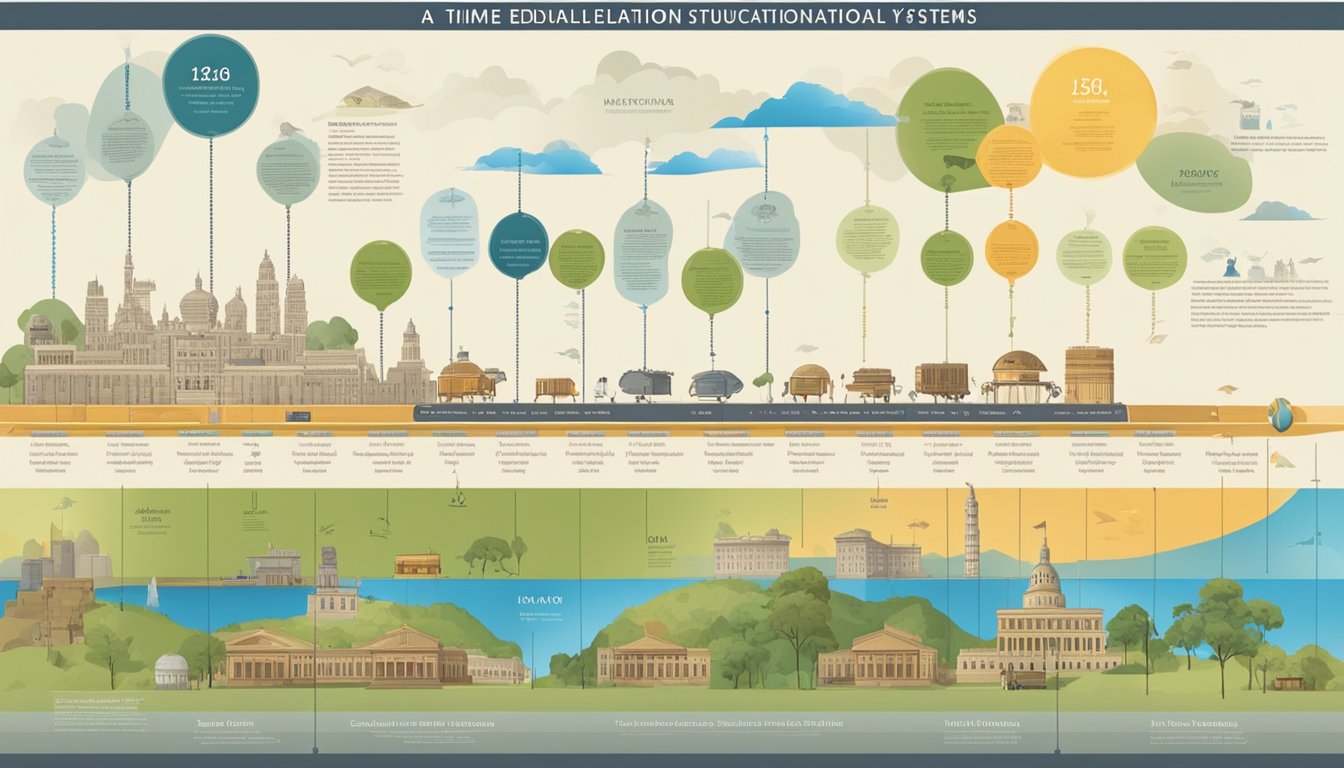
The history of education can be traced back to ancient civilizations, such as Egypt and Mesopotamia. In Egypt, during the Middle Kingdom period, a formal school was developed under the direction of Kheti, treasurer to Mentuhotep II (2061-2010 BC) ^4^. Meanwhile, in Mesopotamia, the early logographic system of cuneiform script took years to master.
The concept of school underwent significant changes over time, reflecting societal values and adapting to cultural and technological advancements. John Locke, a 17th-century philosopher, advocated for thorough education based on reason and observation. His ideas influenced many progressive educators of his time^6^.
In the 19th century, Horace Mann was instrumental in promoting publicly funded schools in the United States^7^. These schools aimed to provide universal access to education for all children, regardless of social and economic background.
Significant educational approaches emerged during the 20th century, which further shaped the modern education experience:
- Montessori Method: Developed by Maria Montessori, emphasizing child-centered learning and individual growth.
- Progressive Education: Pioneered by John Dewey, focusing on critical thinking and problem-solving skills.
- Vocational Education: Preparing students for specific careers through practical training and technical skills.
Recent advancements in technology have had a pronounced impact on education, bringing about significant shifts in teaching methods and learning experiences^8^. Digital tools and online learning platforms offer students access to information, interactive experiences, and personalized learning paths.
However, the ongoing evolution of educational systems continues to face challenges, such as:
- Availability and access to quality education for underprivileged communities.
- Balancing traditional teaching methods with technological advancements.
- Adapting the curriculum to the demands of a rapidly changing world.
Nonetheless, the ongoing evolution of education is a testament to human progress, the relentless pursuit of knowledge, and the belief in providing everyone with the opportunity to learn and grow^9^.
Formal Education in Ancient Civilizations
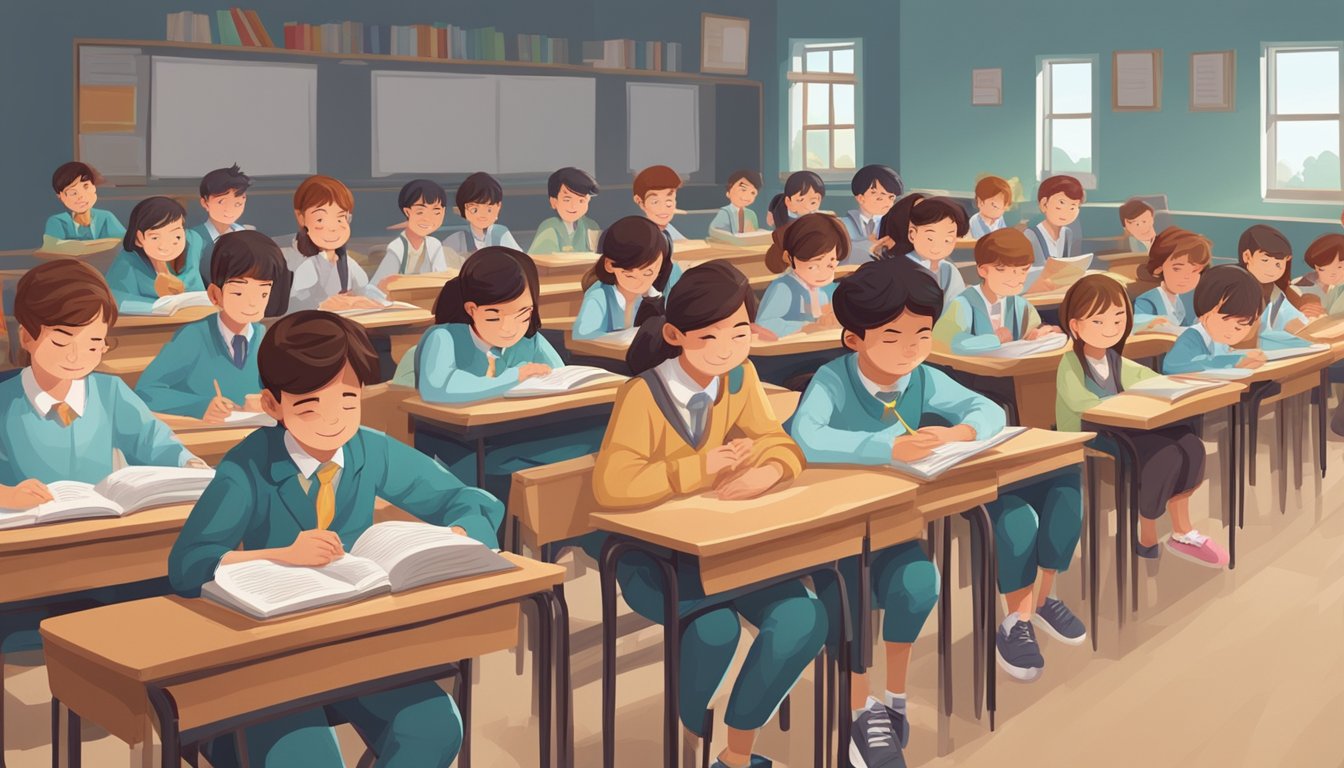
The concept of formal education can be traced back to ancient civilizations such as Mesopotamia, Egypt, and Greece. In Mesopotamia, education was developed with a focus on training scribes and priests, as their society was contemporary with Egyptian civilization1. Cuneiform script, an early logographic system, took many years to master, leading to a limited number of individuals becoming proficient enough to be hired as scribes2.
In Egypt’s Middle Kingdom, possibly the earliest formal school was established under the direction of Kheti, treasurer to Mentuhotep II (2061-2010 BC)2. Egyptian education was primarily geared towards teaching the art of writing and reading to boys from wealthy families. This was important as literacy was essential for maintaining records and passing on the customs of their civilization.
Ancient Greece is also known to have played a significant role in the history of formal education. Founded in 387 B.C., Plato’s Academy in Athens served as an educational institution where philosophy and rhetoric were studied3. Only boys from wealthy families, aged 16 and above, were sent to tertiary education with the aim to gain influence and power through their understanding of rhetoric.
As a brief overview of the development of formal education in these civilizations, we can see it was primarily focused on providing specific knowledge and skills to a limited group of people. The importance of literacy and mastering specific skills suited to their respective societies was of great significance.
Footnotes
- Education – Ancient Societies, Literacy, Pedagogy | Britannica ↩
- History of education – Wikipedia ↩ ↩2
- Who Invented School? The History of Education Made Easy ↩
Modern School Systems and Reform Movements
The modern school system has undergone significant changes and reforms since its inception. Horace Mann, a Massachusetts legislator and secretary of that state’s board of education, initiated the idea of public schools in the 1830s. He wanted to create schools that would be universally available to all children, free of charge, and funded by the state.
In the United States, the Progressive Movement played a crucial role in the evolution of education. This movement, spanning from the 1890s to the 1930s, aimed to improve education standards and widen the number of students being served. This era saw a dramatic expansion of both schools and students, especially in fast-growing metropolitan cities. By 1910, smaller cities also began building high schools.
The 19th-century public education reform movement had a vital impact on the American society. The establishment of state-funded public school systems led the way to the modern public education system that we have today. This movement considerably shaped the future of education in America.
Though Horace Mann is widely known as the “Father of the Common School Movement” and credited with inventing the modern school in the United States, it is crucial to remember that schools were present in ancient civilizations such as Egypt, Greece, India, and China. However, the modern school system has evolved to serve a broader audience and adapt to the ever-changing needs of society.
Influences from the Industrial Revolution on Schooling
The Industrial Revolution had a significant impact on the development of modern education systems. Before the 1800s, education was primarily accessible for children from affluent families, while those from lower socioeconomic backgrounds had limited opportunities for learning ^1^. The advent of industrialization brought about several essential shifts in the field of education, making it more inclusive and accessible to everyone.
One of the key developments during this era was the emergence of compulsory education laws and the establishment of public schools. These laws were introduced to ensure that every child, regardless of their background, had access to essential knowledge and skills.
This change meant that children from all walks of life, including those from working-class families, could have an opportunity to receive a structured education.
The focus of these educational systems was primarily on equipping students with practical skills that would be useful in the industrialized society. Here’s a brief overview of subjects taught in schools during this time:
- Reading, Writing, and Arithmetic: Core skills necessary for functioning in a literate society.
- Technical Skills: Practical abilities related to working in factories or trades.
- Civic Education: Knowledge on citizenship and responsibilities within the evolving democratic systems.
It is also noteworthy that the structure of schools during the Industrial Revolution was heavily influenced by the factory model. Schools were designed to have similar features to factories^2^. Some aspects of this model include:
- Division of students by age.
- Strict schedules and regimented daily routines.
- Emphasis on uniformity and standardization of curriculum.
While the industrial era’s educational systems laid the foundation for today’s schools, the current educational landscape has undergone significant transformations.
Education today is more focused on personalized learning, creativity, and preparing students for an information-rich society. The influence of the Industrial Revolution on schooling must be acknowledged, as it paved the way for the modern educational systems that exist today.
Frequently Asked Questions
What historical figures significantly contributed to the founding of modern education systems?
Ancient Greece played a pivotal role in the formalization of education, with the philosopher Plato founding the Academy in Athens in 385 B.C., which is considered one of the earliest institutions resembling modern schools. The American educator Horace Mann is also known as the Father of modern education for his efforts in promoting a strong public educational system.
Can the origins of school recess be traced to a specific person or culture?
The origins of school recess are difficult to pinpoint to a specific person or culture. However, it is known that play and physical activity have been essential components of learning throughout human history, especially for developing motor skills, social skills, and cognitive abilities.
Why was the standardization of a 12-year school system established?
The standardization of a 12-year school system was likely a product of evolving societal needs and an emphasis on education for all. One example is the Prussian General School Regulation, which required young citizens to be educated from age 5 to age 13-14 in subjects like religion, singing, and reading.
Who is recognized as the first known teacher in history?
One of the earliest known teachers in history is the ancient Greek philosopher Socrates, who shared his knowledge and wisdom with students like Plato. Socrates’ teaching methods, including the Socratic method, are still influential in today’s educational systems.
Who is the real inventor of school?
It’s difficult to assign the invention of school to an individual since education and learning have been evolving for centuries across different cultures and civilizations. However, key figures like Plato and Horace Mann are credited with advancing formal education and establishing the foundation for modern school systems.
Who invented 12 years of school?
The concept of a 12-year school system cannot be attributed to a single person, as it is a result of numerous influences over time. The Prussian General School Regulation, for instance, provided the foundation for a 12-year system by mandating education for children aged 5 to 13-14.
Who invented homework?
The invention of homework can be credited to the ancient Roman teacher Quintilian, who believed that students should continue to study and practice their lessons outside the classroom in order to reinforce their learning effectively.
Why does school exist?
The primary purpose of school is to deliver education and equip individuals with the knowledge and skills needed to become productive members of society. Schools also serve as a means to promote critical thinking, foster social interaction, and encourage personal and intellectual growth.

